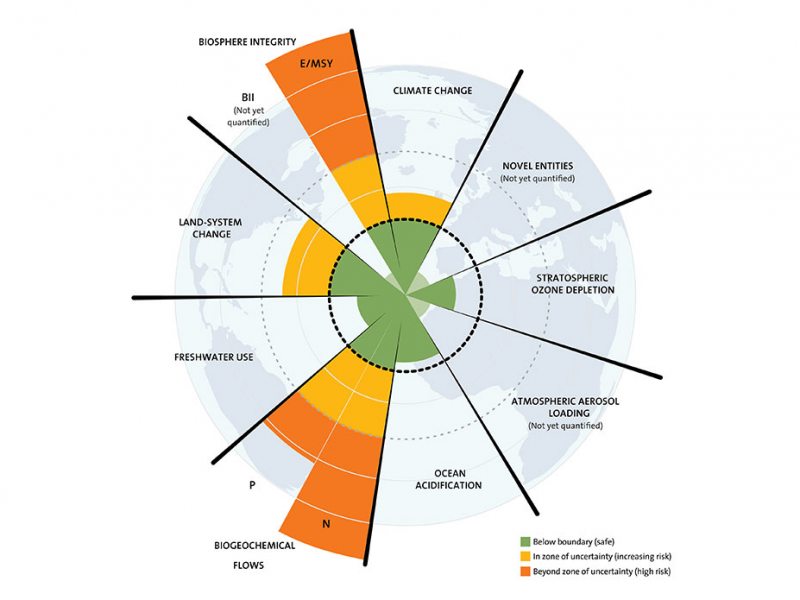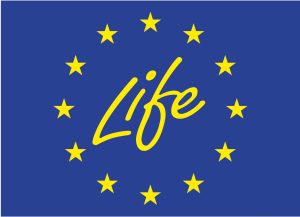While many people have heard about the COP27 climate talks that took place at the beginning of November, another less advertised COP – this one on biodiversity – will be held from 7-19 December in Montreal. Biodiversity COP15, will define the policy lines for biodiversity protection over the next decade.
Given the current state of the talks, there is a big risk that this COP will lead to the promotion of false solutions such as biodiversity offsetting and other market-based approaches for nature protection. The EU is very much supporting this agenda, hiding under misleading terms like “Nature-Based ‘Solutions’” and “Nature Positive”.
Why are these concepts misleading? What do they even mean? Here is all you need to know about this year´s Biodiversity COP15!
What is the COP15 and why is it important?
Since the 1990s, the United Nations Convention on Biological Diversity (CBD) has brought together governments to establish global strategies for the conservation and sustainable use of biological diversity. The CBD’s 2011-2020 framework for action set out 20 “Aichi targets” — which, unfortunately, have not been achieved.
The CBD will establish a new global strategic plan, known as the Global Biodiversity Framework. After delay due do the Covid-19 pandemic, countries will be meeting this December for the 15th Conference of the Parties (CBD COP15). This “Paris-style summit for biodiversity” represents a landmark moment to make the transformative changes urgently needed to stay within planetary boundaries. In the illustration below, the term ‘biosphere integrity’ includes biodiversity loss and extinctions.

However, although the draft Global Biodiversity Framework contains some promising elements, such as the inclusion of agroecology (although this is unfortunately very much under threat), it overall lacks ambition and clarity.
Central to the CBD remains a neoliberal agenda hidden behind buzzwords and vague terms – “Nature-Based ‘Solutions’” or “Nature Positive” for instance – that continues to prioritize economic growth and competitiveness in the Global North instead of truly addressing the biodiversity crisis.
A not so positive “Nature-positive” agenda
“Nature positive” is a concept used to describe the stopping and reversing of nature loss towards a “net gain” of biodiversity. The concepts of “Net Gain”, “No Net Loss”, “Nature Positive” and “Net improvement” have become popular in biodiversity conservation circles and are embraced in the first draft of the Global Biodiversity Framework released by the CBD.
Just as with net zero climate targets, the “net” rhetoric allows for “offsetting”, which means that biodiversity is allowed to be destroyed in one place with the promise of reinstating or protecting it somewhere else.
Biodiversity offsetting is not a new idea. It has been promoted since 2010 by the European Commission and implemented in many countries with an appalling track record of failure from an environmental perspective along with a terrible track record of Human Rights abuses. There are many documented cases of people being driven off their land to make way for offsetting projects.
The sad reality is that whereas biodiversity losses are guaranteed, future biodiversity gains are uncertain, as they are likely to be realised late or not at all. Experiences so far indicate that policies leading to biodiversity offsetting are more likely to lead to further biodiversity loss. This is not to say that restoration is not needed, but only if it comes in addition to and not instead of curbing destruction.
The risks behind Nature-Based Solutions
The term nature-based solutions (NBS) has gained prominence in both climate and biodiversity debates over the past few years and has found its way on the first draft of the Global Biodiversity Framework. The term nature-based solutions is being used in many contexts with different definitions and implementations.
It is defined by the United Nations Environment Assembly as “actions to protect, conserve, restore, sustainably use and manage natural or modified terrestrial, freshwater, coastal and marine ecosystems, which address social, economic and environmental challenges effectively and adaptively, while simultaneously providing human well-being, ecosystem services and resilience and biodiversity benefits”
NBS are also being widely promoted by the European Commission, which defines them as “solutions that are inspired and supported by nature, which are cost-effective, simultaneously provide environmental, social and economic benefits and help build resilience”.
The risks behind the concept of NBS have been described in a report by Friends of the Earth International published last year.
One of the big issues with NBS is that its definition is very vague. What passes as NBS could include actions that are counter-productive for the environment such as monoculture tree plantations, so-called “sustainable intensification” of farming and new gene technologies.
Very worrying is the fact that NBS schemes are likely to be linked to offsets. NBS without offsetting is unfortunately unlikely to happen, since their appeal resides precisely in their “cost-effectiveness” compared to curbing destruction, as well as on their ability to provide business opportunities. They are in practice one of the new names given to carbon and biodiversity offsetting.
NBS are already being used by corporations to provide them with a new form of greenwashing. Many fossil fuel and agribusinesses companies claim to be investing in NBS while expanding their destructive practices and failing to cut their carbon emissions at the source and reduce their material footprint.
For instance, Total, the French fossil fuel company and seventh biggest producer of oil, announced plans to plant a “40,000 hectare forest” in the Republic of Congo, with the aim to “sequester more than 10 million tons of CO2 over 20 years”. Civil society organisations have warned that this project is likely to be an environmental and possibly social disaster, with little to no positive impact to the climate crisis, while covering up Total’s continued emissions of greenhouse gases and potentially highly damaging oil concession in the country.
Protect biodiversity, change the system
Although they might sound attractive, concepts such as “Nature Positive” and “Nature Based Solutions” distract from the real causes of the crisis we face today and the crucial need to drastically cut carbon emissions and properly protect and restore biodiversity and ecosystems. They are actually likely to only make matters worse by perpetuating inequality and increasing corporate power.
What is needed is for governments and the European Commission to instead put in place tighter environmental regulations to reduce biodiversity destruction.
The CBD Alliance, a network of civil society groups, has drawn up a list of “Do’s and Don’ts” for a successful Global Biodiversity Framework. Their demands include:
- A rights-based approach, full and equal participation for Indigenous Peoples and Local Communities, global equity and financing
- Promotion of agroecology and community-based solutions, integrated into proper conservation plans
- Prohibition of false solutions, such as offsetting, “no net loss”, “net positive” or Nature-based Solutions
- Stringent regulation for business by governments, in a coordinated way
- Protection of biodiversity from climate change, not putting biodiversity to the service of the climate
- Strong accountability, compliance and enforcement measures
Looking for more information?
Here are some useful links:
- Friends of the Earth International’s reports “Nature Based Solutions: A wolf in sheep’s clothing” and “Double Jeopardy: The rising threat to food sovereignty and agroecology from false climate solutions”
- Open letter signed by 119 experts from academia and civil society highlighting concerns about the so-called “nature positive economy” ahead of COP15
- CBD Alliance’s updated report “The ingredients for a successful post 2020 Global Biodiversity Framework”

Co-funded by the European Union. Views and opinions expressed are however those of the author(s) only and do not necessarily reflect those of the European Union or CINEA. Neither the European Union nor the granting authority can be held responsible for them.







